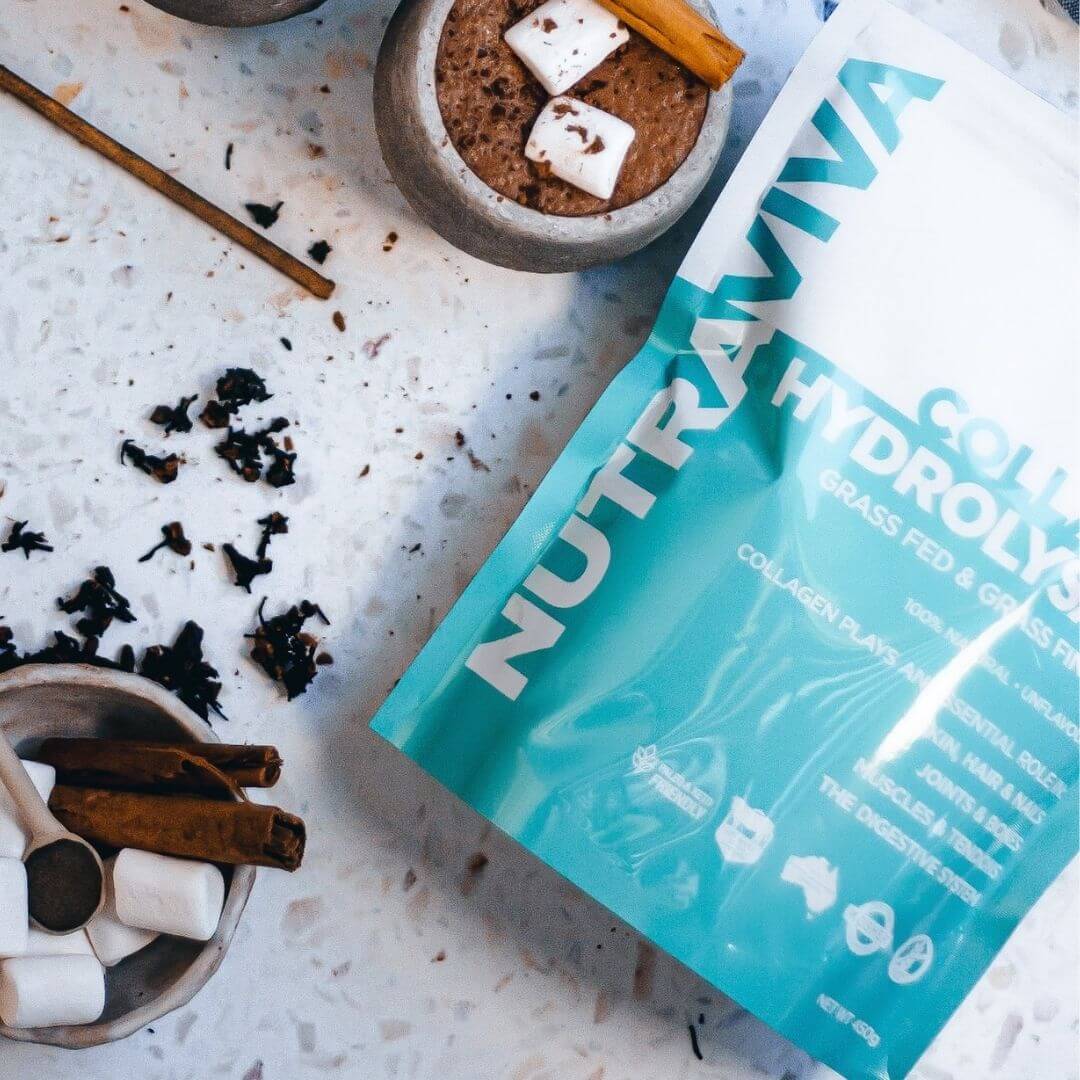
Share
When should I start taking collagen?
Collagen is often referred to as the "glue that holds our body together" in the world of natural health and wellness. It's a protein that plays a crucial role in maintaining the structure and elasticity of skin, hair, nails, and joints. It also provides benefits for reducing inflammation, maintaining muscle and support for gut health and digestive balance. Collagen levels naturally decline as we age, leading many to wonder when the best time is to look at incorporating collagen supplements into their health routine.
The answer to when to start taking collagen supplements is not one-size-fits-all; it depends on individual factors and goals. The body's natural collagen production begins to decline as early as our twenties. As we progress beyond the age of around 40, it's widely acknowledged that collagen depletion outpaces our body's ability to generate it leading to the visible and physical signs of aging.
Consequently, it may be more sensible to commence collagen supplementation in your early twenties rather than postponing, this particularly applies if you are training heavily in sports, recovering from surgery or injury, or involved in regular physical activity and stress as part of your work or daily life as collagen depletion may occur from this increased collagen turnover in the body and potential weakening on connective tissues from strain or injury associated. Many elite athletes are now incorporating hydrolysed collagen powder into their nutrition protocol to support their training loads, recovery and performance needs.
Taking collagen supplements can offer several potential benefits, including:
- Improved Skin Health: Collagen helps maintain skin elasticity and hydration, reducing the appearance of fine lines and wrinkles.
- Joint Support: Collagen may promote joint flexibility and reduce the risk of joint pain and stiffness.
- Stronger Hair and Nails: Collagen is essential for healthy hair and nails, potentially reducing brittleness and breakage.
- Gut Health: Some research suggests that taking collagen supplements can help support digestive health.
Factors to Consider
Several factors should be taken into account when deciding the right age to start taking collagen powder supplements:
- Age and Collagen Production
Collagen production naturally starts declining in our mid-20s, and this reduction accelerates in our 30s. By the time we reach your 50s, your body's collagen production can drop by over 30%. Considering this, it is suggested that starting collagen supplementation in your late 20s to early 30s is a worthwhile preventive measure.
- Skin Health Goals
Your personal skincare goals play a significant role in when you should start taking collagen supplements. If you're looking to maintain youthful skin, reduced fine lines and wrinkles, and enhance skin hydration, starting in your late 20s or early 30s may be ideal. However, if your primary concern is joint health, you might consider supplementation a bit later, depending on when joint issues become a concern. Collagen supplementation can be seen as a natural, internal approach to supporting out beauty nutrition and beauty collagen formulas are becoming widely used by people wanting to support their skin, hair and nails health from the inside out.
- Dietary Habits
A balanced healthy diet plays a crucial role in collagen production. Foods rich in vitamin C, amino acids, and antioxidants support natural collagen synthesis in the cells. A diet high in these nutrients may support natural collagen synthesis so incorporating them into a balanced healthy diet whilst supplementing, encourages collagen synthesis in the body to further support your supplementation goals.
- Lifestyle Factors
Lifestyle factors like sun exposure, smoking, and alcohol consumption can accelerate collagen breakdown. If you're exposed to these factors, starting collagen supplements earlier may be advisable, as well as looking at incorporating beneficial lifestyle changes to reduce the potential for further health issues.
- Consult a Healthcare Professional
It's essential to consult with a healthcare professional, such as your GP or a nutritionist, before beginning any supplement regimen. They can assess your individual needs and provide personalised recommendations based on your age, health status, and goals.
Consistency Is The Key
Any successful transformation in a supplement routine requires consistency. Results may manifest at varying times when following a regular collagen supplement regimen. Skin enhancements may begin to appear in as little as four weeks, whereas noticeable muscle recovery and gut health effects may take up to three months or more depending on injury or inflammation. Joint support may take four to six months, while healthier hair and nails might require approximately 24 weeks of consistent collagen supplementation.
Final thoughts...
The age at which you should start taking collagen supplements varies from person to person. While some individuals begin in their late 20s to maintain skin health, others may choose to start later in life. Ultimately, the decision should be guided by your individual goals, diet, lifestyle, and consultation with a healthcare professional.
Remember that collagen supplements are not a magical cure-all; they work best when combined with a healthy lifestyle, a balanced diet, and proper skincare. So, when contemplating collagen supplementation, consider your unique circumstances and consult with a medical expert to make an informed decision that aligns with your goals.
Disclaimer: As with any dietary choice, it's essential to strike a balance. A varied and balanced diet, coupled with a healthy lifestyle, is key to overall well-being. This blog post is for informational purposes only and does not constitute medical advice. Consult with your Doctor or healthcare professional regarding your individual health needs before making any changes to your health routine or starting any new dietary supplements.

